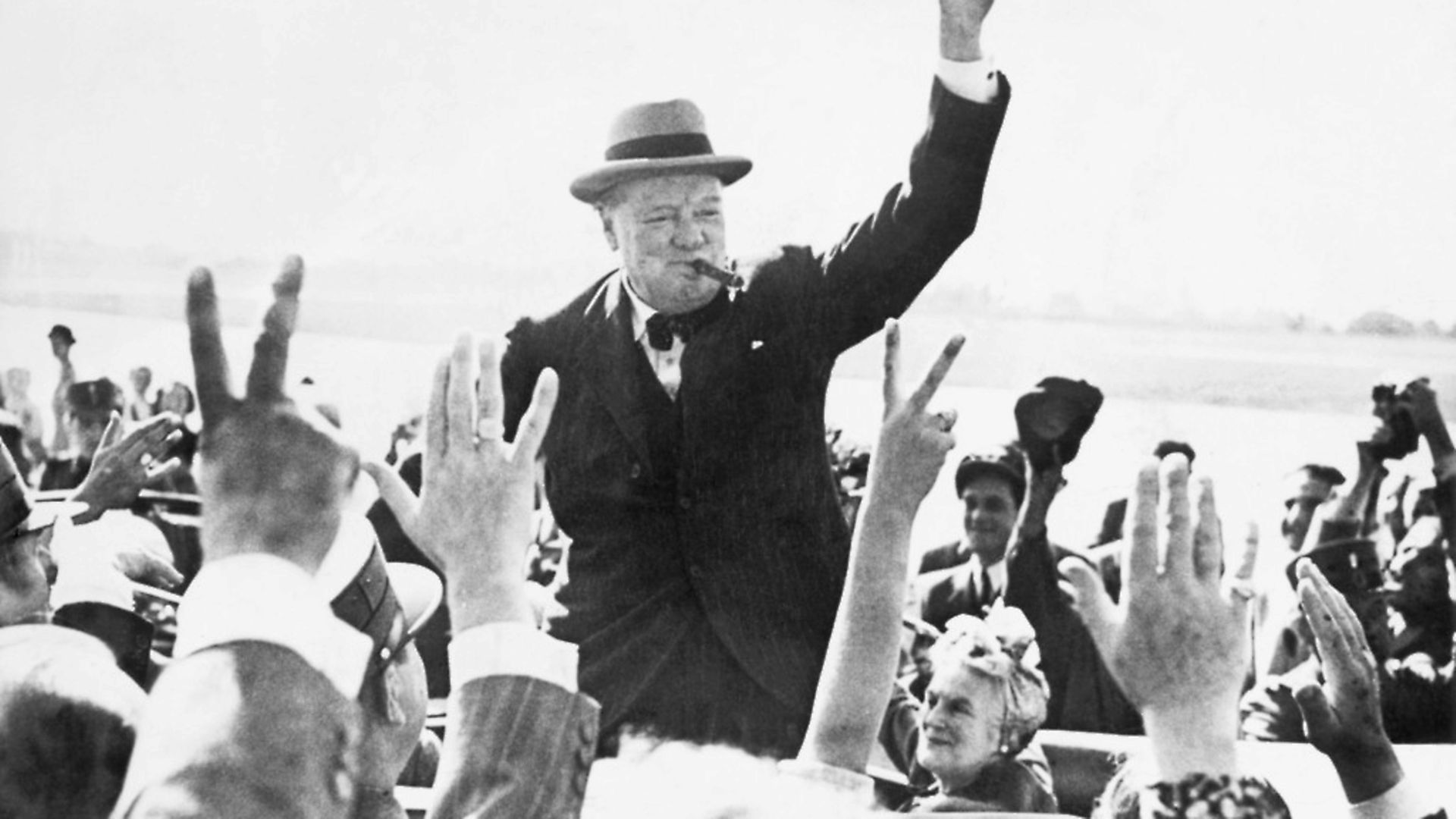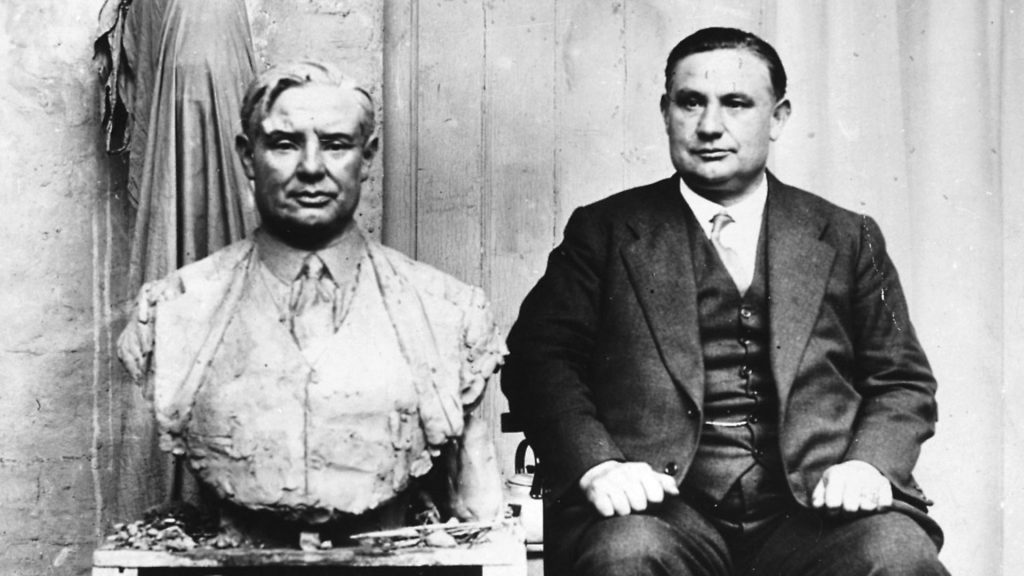
Former Commons speaker JOHN BERCOW reviews Andrew Adonis’ new biography of Ernest Bevin.

Andrew Adonis is right. Ernest Bevin has been all but air-brushed from political discourse. Churchill is eulogised for his phenomenal war leadership; Attlee for transforming post-war Britain; Nye Bevan for fathering our wonderful NHS.
But what about Bevin? From the humblest of origins this man rose to found the largest trade union in Britain, spearheaded the domestic workforce effort in Churchill’s coalition government, brought the trade unions into the heart of the British state, promoted the creation of West Germany, brokered the advent of Nato and contained Stalin whom he loathed.
Born in 1881, the seventh child of a poor single mum whom he adored, Bevin was orphaned at eight and left school barely literate two years later. He grew up in the west country and, cut off from basic amenities, worked as a farm boy to eke out a living. A fellow, but older farmhand, impressed by Bevin’s organisational prowess, was prescient in observing ‘that boy will never work on a farm but he’ll be in parliament yet’.
Bevin had a string of casual jobs while also attending adult school where he acquired debating skills. Yet, as Adonis admiringly describes in his new book Ernest Bevin: Labour’s Churchill, it was as a trade union organiser that Bevin first exhibited explicitly his formidable qualities of leadership. Bolstered by marriage age 25 to Flo, whom he met through the Bristol Socialist Society, he became founder and secretary of the new Bristol carters’ branch of the Dock, Wharf, Riverside and General Labourers’ Union in the spring of 1911. Just over a decade later, he led what had become the Transport and General Workers’ Union. So, with vision and utter conviction from a standing start, Bevin created the post and the institution in which he became a national leader.

In 1919, in support of the dockers’ post-war pay claim, Bevin persuaded his union to agree to a Court of Inquiry. Here Adonis brilliantly captures Bevin’s creative genius, propagandist skill and sheer chutzpah. He appointed himself counsel, prepared the union case unstintingly and took on the bosses’ top silks. Undaunted, and without a hint of stage fright, his opening speech lasted 11 hours. The narrative leaps off the page as Adonis recounts how Bevin presented physical evidence of the paltry diet on which men performing the most arduous physical labour were expected to live. This contrasted with the sumptuous Savoy Grill fare to which their employers were accustomed. The dockers’ wage claim was accepted by the judge in full.
Perhaps extravagantly, but evocatively, Adonis calls Bevin ‘the Picasso of 20th century trade union power’.
Two relationships were key to Bevin’s opportunity to provide leadership in war and peace – those with Churchill and Attlee. Unlike Chamberlain, Churchill knew it was crucial to embrace the unions and Labour to prosecute the war effort. Bevin was ‘the Labour man I wanted most’ and the prime minister appointed him minister of labour in the coalition government. He was not actually an MP at the time but within six weeks he was elected unopposed to the House of Commons for the constituency of Wandsworth Central.
Bevin’s task was to mobilise the working classes across the piece – from the mines to the ports to aircraft production. His authenticity, patriotism, straight talking and raw strength all combined to impress. He became the working class John Bull, as Churchill dubbed him. He recruited 8.5 million women for national service by the end of 1942, took charge of health and safety in workplaces, launched a string of initiatives to improve training, pay and conditions.
The blot on his copybook was opposition to equal pay for women as Bevin feared ‘industrial peace might be endangered’. Nevertheless, his success in establishing Wages Councils eventually protecting at least five million workers is to his credit.
Never knowingly understated, Bevin declared ‘they say that Gladstone was at the British Treasury from 1860 to about 1930. They’ll say that Bevin was at the Ministry of Labour from 1940 to 1990’. Certainly his employment legacy endured until a decade before then.
After Labour’s landslide victory in 1945, Attlee’s appointment of Bevin as foreign secretary proved a masterstroke. Bevin had always been avowedly and ruthlessly anti-communist, seeing communism as ‘an existential threat to the Labour movement and democratic peace’.
Roosevelt originally thought Stalin would work for a world of democracy and peace. Truman later admitted to being an ‘innocent’ at Potsdam in trusting the Russian leader. Even Churchill once declared ‘Stalin I’m sure means well to the world and Poland’. Bevin, hard-headed and perceptive, had Stalin’s number from the get-go. As Adonis puts it ‘Bevin got the full horrific measure of the brutal Soviet megalomaniac better than any other leader of his generation and did more to defeat him than anyone else in the seminal six years after 1945. For the future of Europe and western civilization, these six years were as crucial as the previous six which saw Churchill lead the defeat of Hitler and Nazism’.
Bevin’s policy was to contain Soviet Russia and keep Stalin out of western Europe. In the process, he led the creation of the Federal Republic of Germany, Nato and the transatlantic western alliance which has underpinned our freedom and security for 70 years.
Bevin’s legacy and his talents are not equal to those of Churchill. If, however, Adonis means that Bevin was the nearest thing Labour had to a Churchill and that his domestic record compares favourably, he is right. Churchill described him as ‘the most distinguished man that the Labour Party have thrown up in my time’. Attlee saluted him as ‘a national leader, someone to lean on’, with whom he forged a fine relationship.
That said, there were serious failures and Adonis unsparingly focuses his scholarly cranium on them. First, Bevin was an unreconstructed imperialist. Not enamoured of Indian independence, he had earlier said that ‘politically-minded Indians could be side-tracked by paying no heed to them’. Worse, he argued that with rising living standards ‘the Indian peoples as a whole would not trouble their heads about political development’.
Unsurprisingly, he was no enthusiast for African decolonisation, the progressive spurs there being seized a decade later by Harold Macmillan and Iain Macleod.
Secondly, because he equated British security, prosperity and values with a resolute defence of imperial power, he rejected European economic and political unity. He thought that the European Coal and Steel Community was a threat to coal and steel nationalisation in Britain. He didn’t think the Schuman Plan was serious, believing Britain was far closer to our kinsmen in Australia and New Zealand than to Europe. He was far from alone but it was a strategic error.
Thirdly, he made a mess of matters in Palestine. Mulishly, Bevin refused to accept the April 1946 recommendations of the Anglo-American commission in favour of 100,000 migrants being allowed into Palestine, nor the UN vote for the partition of Palestine in November 1947.
Yet he had no alternative to offer. He just handed back the mandate to the UN and abdicated the responsibility to seek a lasting peace. Worse, he was unquestionably anti-Semitic. He invoked tropes about Jews and money, telling Attlee that a Zionist is defined as ‘a Jew who collects money from another Jew to send to another Jew in Palestine, with the collector taking a good percentage’.
So, Bevin was racist. Far less serious, he bore grudges. He showed himself staggeringly egocentric.
Yet, as Adonis notes, politicians are a ‘job lot’. They must be measured as a whole. Was Bevin a giant who exercised industrial and political power to great ends? He was. Did he leave a lasting impact far more positive than negative? He did. Could he be at least a partial guide to Keir Starmer when the country desperately needs a credible alternative government? He could. In this superb biography Adonis makes that compelling case with style.










